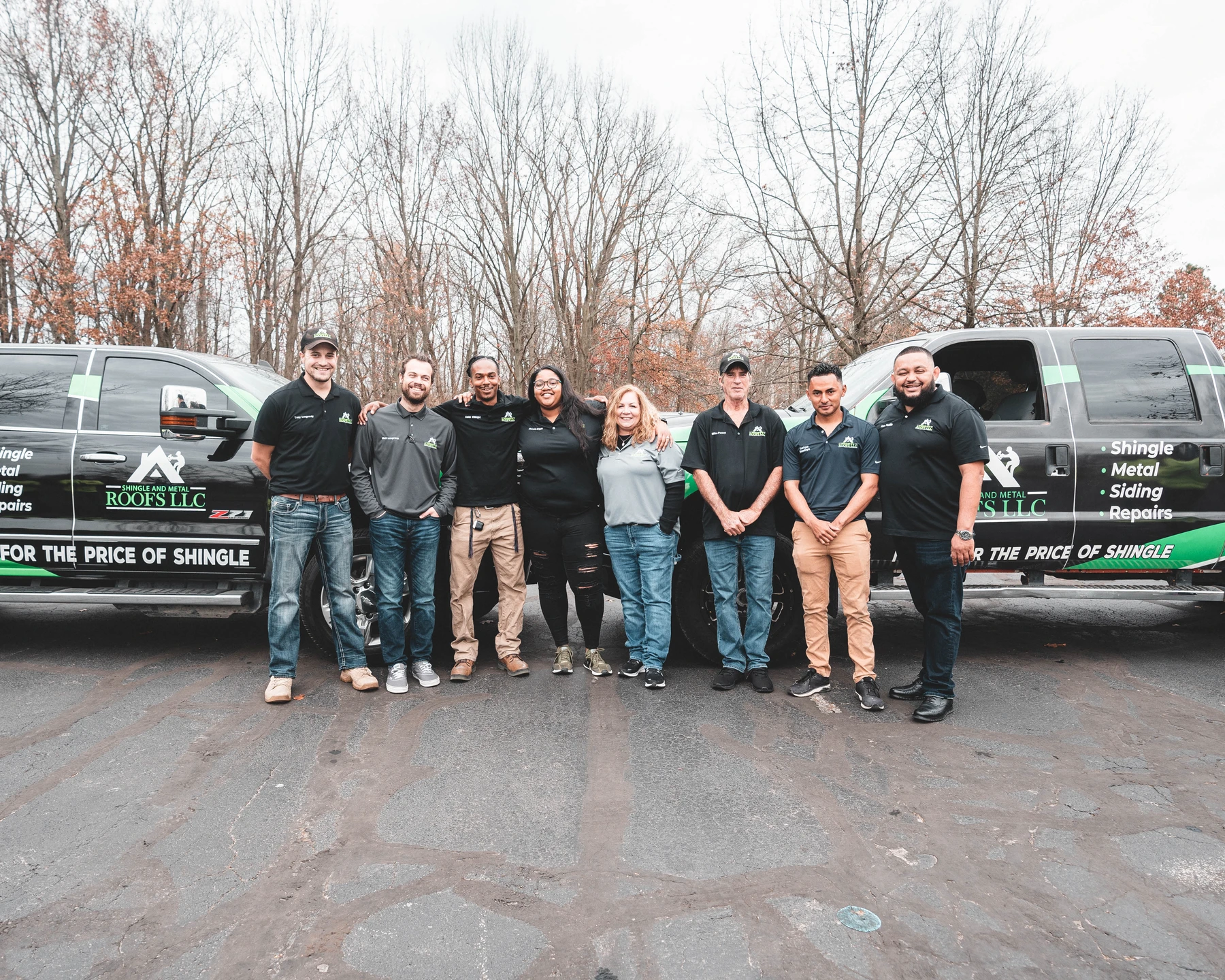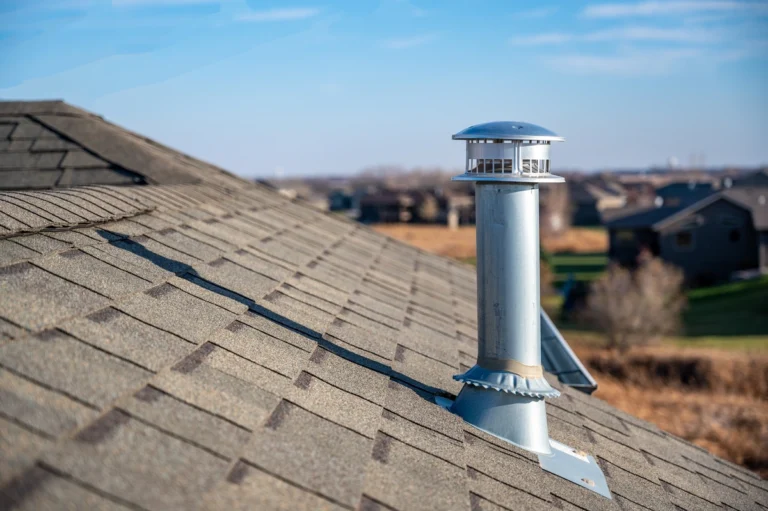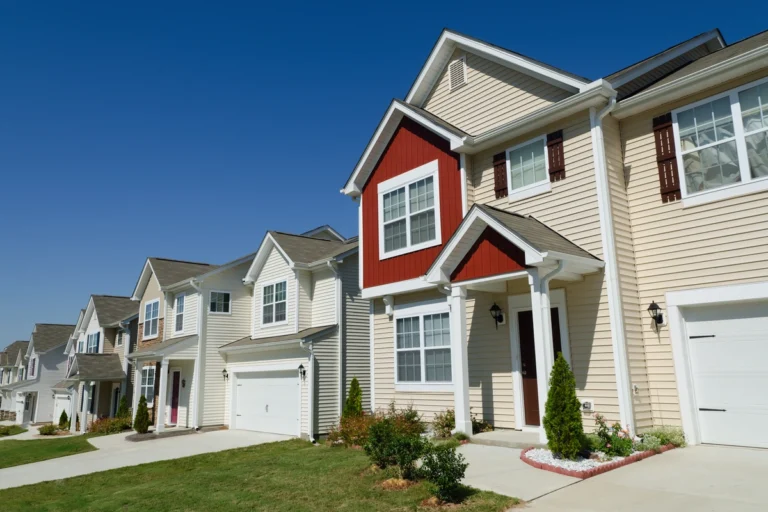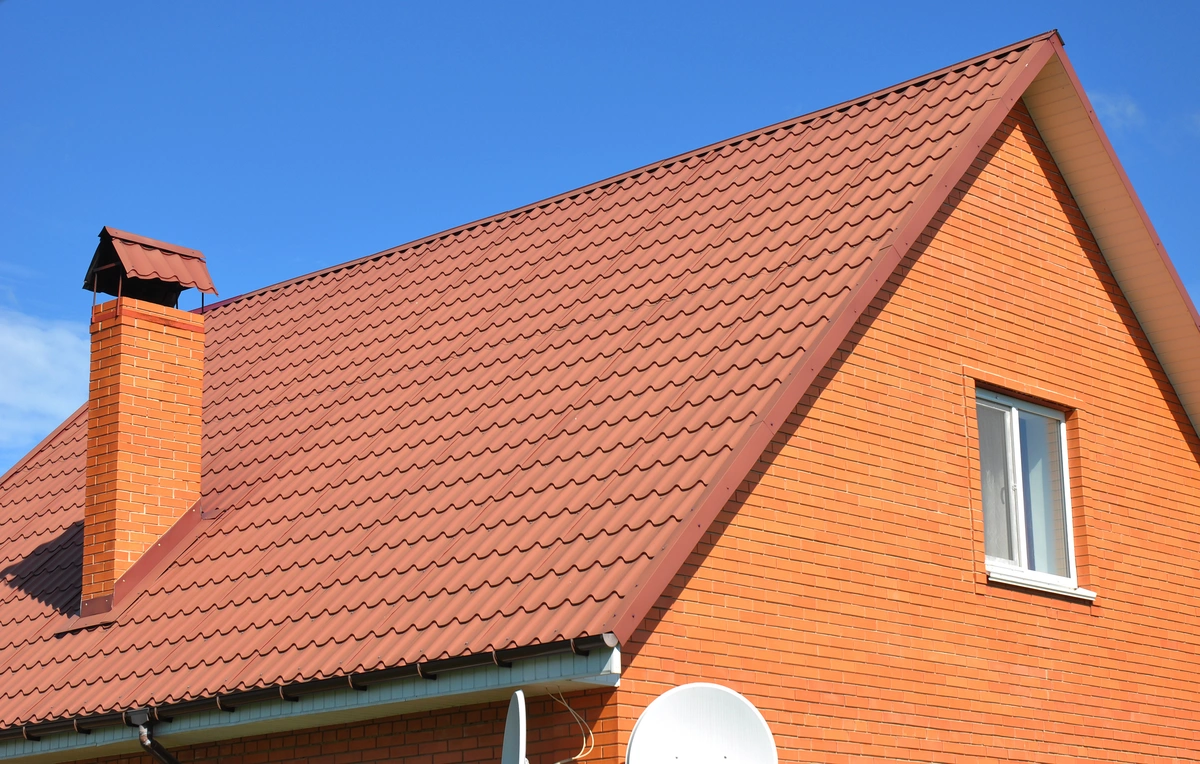
Your roof is one of the most critical components of your home, safeguarding you and your belongings from the elements. Over time, it’s natural for your roof to wear down due to weather, age, and other factors. To ensure the longevity and effectiveness of your roof, regular inspections are essential.
In this comprehensive guide, we’ll help you answer questions, such as:
- How much does a roof inspection cost?
- When should I schedule a roof inspection?
- What should I do after my roof inspection?
Keep reading to learn the answers to these questions and much more!
7 Signs You Need a Roof Inspection
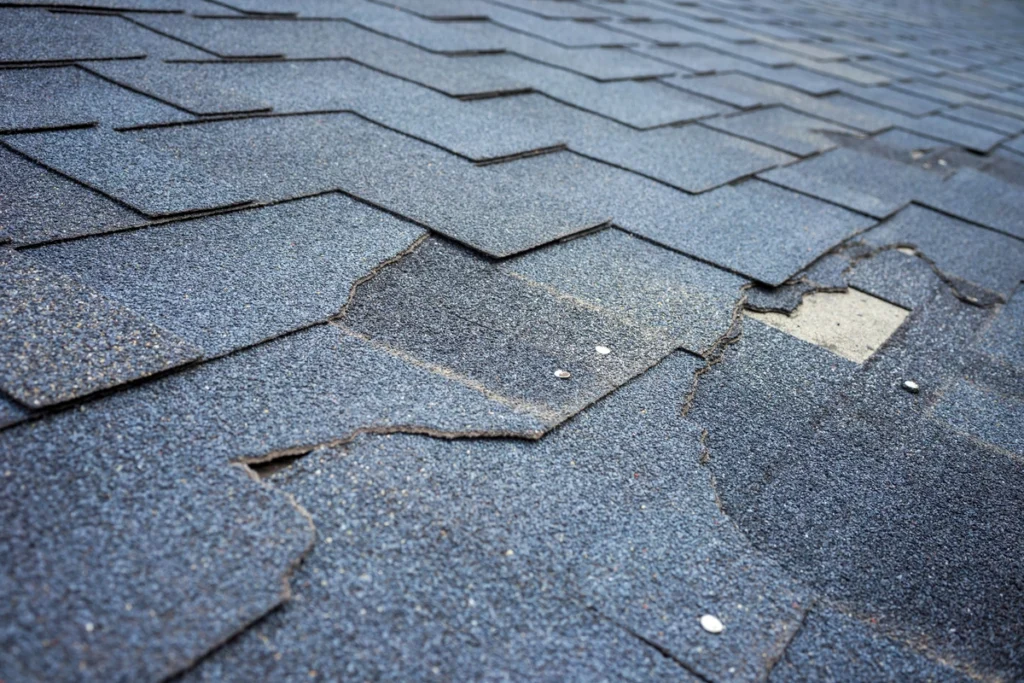
Before we discuss the cost of roof inspections, it’s crucial to recognize the signs that indicate your roof may be in need of professional attention. Identifying these signs early can save you money and prevent more extensive damage. Here are some common indicators:
1) Visible Damage
Obvious signs like missing shingles, cracked tiles, or curling shingles are clear indicators that your roof may need repair or replacement. These issues can lead to leaks and further damage if left unattended.
2) Water Stains on Ceilings
If you notice water stains or discoloration on your ceilings, it’s a strong indication of a roof leak. These stains often appear as brown or yellowish spots and may grow over time.
3) Moss or Algae Growth
The presence of moss or algae on your roof can indicate a moisture problem. These organisms can weaken the structure and compromise the integrity of your roof.
4) Sagging or Uneven Roof Lines
A sagging or uneven roof can be a sign of structural damage or a problem with the roofing materials. It’s crucial to address this issue promptly to prevent further damage.
5) Increased Energy Bills
A sudden increase in your energy bills could be attributed to a compromised roof. If your roof is not properly insulating your home, your HVAC system has to work harder to maintain the desired temperature.
6) Granule Loss
Check your gutters for an accumulation of granules from asphalt shingles. Excessive granule loss indicates shingle wear, which can reduce your roof’s protection.
7) Age of Your Roof
Depending on the roofing material, the lifespan of a roof can vary. If your roof is nearing the end of its expected life, it’s a good idea to schedule an inspection, even if you haven’t noticed any visible issues.
How Much Does a Roof Inspection Cost?
The cost of a roof inspection can vary significantly depending on several factors, including your location, the size and complexity of your roof, and the reputation and expertise of the roofing inspector. On average, you can expect to pay between $150 and $400 for a professional roof inspection.
- Location: Roof inspection costs can vary by region. In areas with a higher cost of living, you may find that inspections are more expensive.
- Roof Size and Complexity: Larger roofs or those with complex features, such as multiple slopes, dormers, and skylights, will typically cost more to inspect due to the added time and effort required.
- Type of Inspector: Hiring a certified and experienced roofing inspector may come with a higher price tag, but it’s often worth the investment for the expertise and accuracy they bring to the inspection.
- Additional Services: Some roof inspectors offer additional services like drone inspections or thermal imaging to detect hidden issues. These services can add to the overall cost.
- Frequency: Routine inspections may be less expensive than inspections done in response to visible damage or leaks since they can be more thorough and preventative in nature.
It’s essential to get quotes from multiple roofing professionals in your area to ensure you’re getting a fair price. While cost is a consideration, remember that the expertise and reputation of the inspector are equally important factors to consider.
What Your Inspector Will Look For
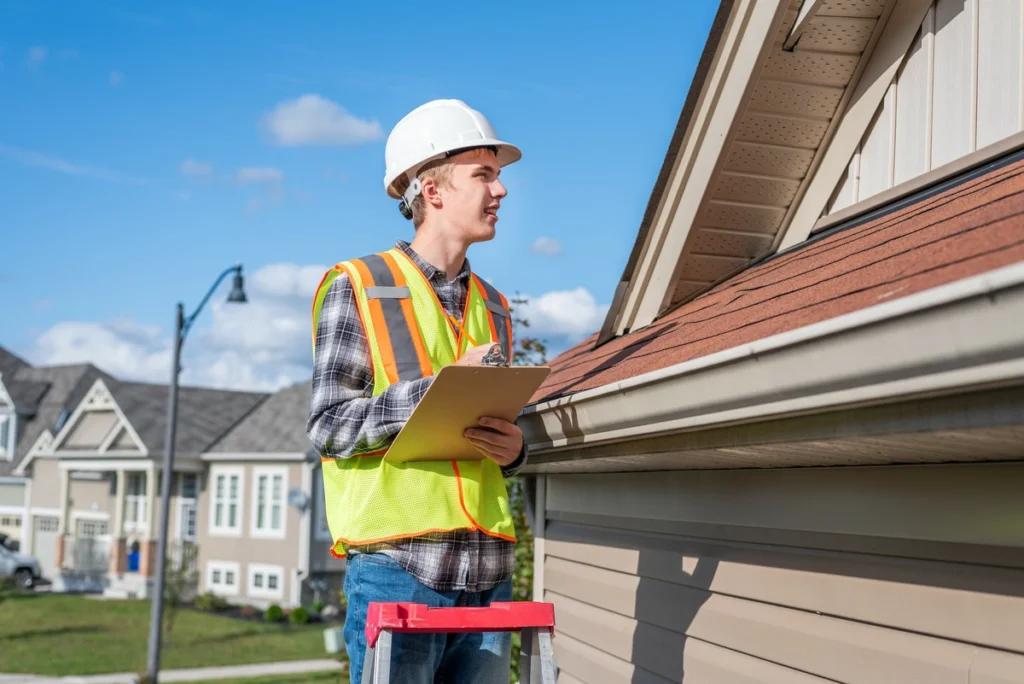
During a professional roof inspection, your inspector will conduct a thorough evaluation of your roof to assess its condition and identify any potential issues. Here’s what they’ll look for:
- Shingle or Tile Condition: Inspectors will examine the condition of your roofing material, checking for damage like cracks, missing pieces, or curling.
- Flashing: They will inspect the flashing around roof penetrations, such as chimneys and vents, to ensure they are properly sealed and in good condition.
- Gutters and Downspouts: The condition of your gutters and downspouts will be assessed to ensure they are clear of debris and effectively channeling water away from your roof.
- Attic Inspection: Some inspectors may venture into the attic to check for signs of leaks, moisture, or inadequate ventilation, all of which can impact the condition of your roof.
- Ventilation: Proper attic ventilation is crucial for preventing moisture buildup and extending the life of your roof. Inspectors will assess your ventilation system for adequacy.
- Structural Issues: Your roof’s structure, including the decking and rafters, will be inspected for signs of damage, sagging, or deterioration.
- Hidden Issues: Advanced tools like thermal imaging cameras or drones may be used to detect hidden issues not visible to the naked eye, such as moisture intrusion or insulation problems.
- Documentation: A professional inspector will provide you with a detailed report outlining their findings, including photographs, descriptions of any issues, and recommendations for repairs or maintenance.
What to Do After Your Roof Inspection
After your roof inspection is complete, you’ll receive a detailed report outlining any issues discovered and recommendations for the next steps. Here’s what you should do:
1) Review the Report
Carefully review the inspection report provided by the inspector. Make sure you understand the findings and recommendations.
2) Prioritize Repairs
If the report identifies any necessary repairs or maintenance, prioritize addressing these issues promptly to prevent further damage.
3) Get Multiple Quotes
If significant repairs or a roof replacement is recommended, it’s a good idea to obtain quotes from multiple roofing contractors to ensure you’re getting the best value and quality of work.
4) Consider Your Options
Depending on the severity of the issues identified, you may need to decide between repairs or a full roof replacement. Consult with roofing professionals to determine the best course of action for your specific situation.
5) Budgeting
Plan your budget accordingly for the necessary repairs or replacements. Roofing projects can be a significant investment, so it’s essential to be financially prepared.
6) Schedule the Work
Once you’ve chosen a contractor and determined the scope of the project, schedule the work at a convenient time and consider factors like weather conditions.
7) Regular Maintenance
To extend the lifespan of your roof and prevent future issues, consider implementing a regular maintenance plan, including routine inspections.
Talk with a Roof Inspector
Investing in a roof inspection is a wise decision that can save you money in the long run by identifying and addressing issues early, preventing further damage to your home. While the cost of a roof inspection may vary, the benefits of maintaining a healthy and functional roof far outweigh the expense.
And if you want to work with the best in the biz, there’s no question who you should call! At Shingle and Metal Roofs, we work closely with our customers to make sure that their roofs are ready to protect them for years to come. Contact us today to set up your appointment.

